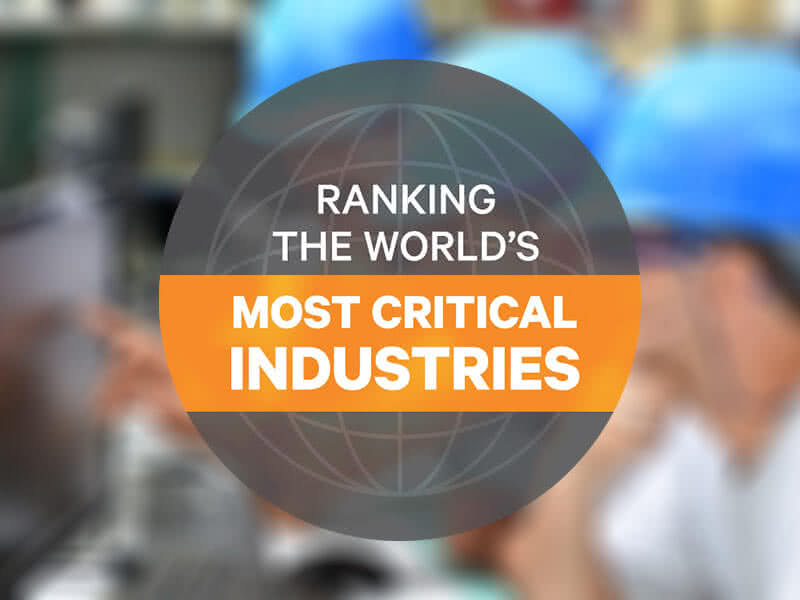
Columbus, Ohio [June 20, 2017] – Utilities, including electricity, gas, nuclear power and water treatment, are the most critical industries in the world according to a new ranking from Vertiv, formerly Emerson Network Power. Vertiv convened a panel of global critical infrastructure experts to systematically quantify and rank the criticality of multiple industries based on 15 criteria. Mass transit—specifically rail and air transportation—ranked second on the list, followed by telecommunications, upstream oil and gas activity and cloud and colocation. The full list is available in a new report, Ranking the World’s Most Critical Industries, released today and available at www.VertivCo.com/MostCritical.
The panel set criteria encompassing the range of potential impacts from the loss of availability of critical systems and weighted them based on the severity of the impact. These criteria then were used to create a criticality rubric the panel used to score the industries, which then were ranked by their average scores.
“If there is a common theme at the top of this list, it is the interconnectedness of these industries,” said Jack Pouchet, vice president, market development, Vertiv. “These sectors are important to the foundation of today’s society, and downtime in any of these areas can reverberate across industries and around the globe. This will only continue as our world becomes more mobile and more connected and as the Internet of Things expands.”
Clean power and water are fundamental needs in a developed society and underpin most other industries and services, making utilities a clear choice as the most critical industry. Mass transit ranked second, with panelists citing not just the safety of travelers, but the massive impact delays and disruptions can have across multiple businesses, markets and the world. The No. 3 ranking for telecommunications reflects the importance of communications and connectivity in personal and business activities and emergency situations.
Financial services topped the list of industries ranking highest in terms of financial impact of unplanned downtime. E-commerce was second, followed by cloud and colocation. Cloud and colocation also ranked fifth overall in the list of most critical industries due to the increased dependence on those platforms across multiple businesses. The panel also identified cloud and colocation as one of several rapidly emerging industries that are becoming increasingly critical.
“Cloud and colocation growth continues to accelerate,” said panelist Tony Gaunt, senior director for colocation, cloud and banking, financial services and insurance for Vertiv in Asia. “We are right at the beginning of the up curve for core industries’ cloud adoption, and it’s likely that future critical services—the IoT networks that support smart cities and manufacturing, for example—will develop in the cloud.”
The full list of critical industries as well as the analysis of specific categories, emerging industries and the ranking methodology are available in the report, Ranking the World’s Most Critical Industries. To see how other industries rank, use the Criticality Calculator. For more information on technologies and solutions to ensure network availability and additional content from Vertiv, visit www.VertivCo.com/MostCritical.
About Vertiv
Vertiv designs, builds and services critical infrastructure that enables vital applications for data centers, communication networks and commercial and industrial facilities. Formerly Emerson Network Power, Vertiv supports today’s growing mobile and cloud computing markets with a portfolio of power, thermal and infrastructure management solutions including the ASCO®, Chloride®, Liebert®, NetSure™ and Trellis™ brands. Sales in fiscal 2016 were $4.4 billion. For more information, visit VertivCo.com.
CONTACT:
Vince McMorrow
T +614 383 1622
E Vince.McMorrow@Fahlgren.com



